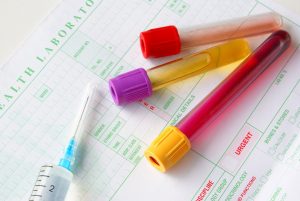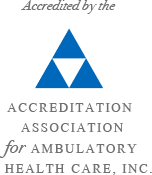What is a Liver Biopsy?
 A liver biopsy can help your doctor confirm or rule out the presence of liver disease or damage in order to guide treatment decisions.
A liver biopsy can help your doctor confirm or rule out the presence of liver disease or damage in order to guide treatment decisions.
In this blog, the NYC gastroenterologists at Gramercy Park Digestive Disease Center (GPDCC) in Manhattan explain what’s involved with a liver biopsy.
What is a liver biopsy?
This type of biopsy allows your doctor to use a thin needle to extract a small bit of tissue for further testing.
It may be performed if other tests indicate that you may have liver damage or disease. It can be used to confirm or rule out the presence of any issues and also help determine the severity of these conditions.
What is involved in a liver biopsy?
Two weeks before your biopsy, you should avoid taking aspirin or anti-inflammatory medications, which can make it harder for your blood to clot.
You shouldn’t eat or drink for eight hours prior to your biopsy, and someone will need to drive you home afterward.
When you arrive for your biopsy, you’ll undergo some blood tests to make sure your blood is able to clot well, and you may also receive an ultrasound to identify the best spot to insert the needle.
Part of your upper abdomen will be cleaned, and a local anesthetic will be used to help relieve any pain. A small incision is then made in order to insert the needle and extract a small sample of tissue from your liver. The biopsy will be completed in only about 15 to 20 minutes.
Your heart rate and blood pressure will be monitored for four hours as you recover. After recovery, you’ll be able to be driven home, and you’ll usually need to refrain from working or heavy exertion for a day or two.
When the results of your biopsy are received, your doctor will check them and can recommend a treatment plan if disease or damage is detected.
If you’ve had testing or symptoms that indicate you may have a diseased or damaged liver, make an appointment today with Gramercy Park Digestive Disease Center (GPDDC) for an evaluation. If needed, we can conduct a liver biopsy at our gastroenterology center to gather the information needed to recommend the best possible treatment.


